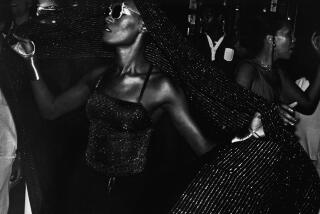Roots Music That’s Emotional--and Polished
- Share via
If famed folklorist Alan Lomax had taken his recorder to music conservatories, recital halls and Broadway theaters instead of the cotton fields and churches of the South, he might have come back with this collection.
An ambitious, enterprising, heartfelt, idealistic, relentlessly educational compendium of African American song predating the era of sound recording, “The Long Road to Freedom” turns the popular image of black roots music on its head.
It transfigures material usually heard in raw, untrained form into polished, almost Shakespearean terms.
That’s a product of the times (it was recorded in New York between 1955 and 1971) and of the sensibility of its organizer, Harry Belafonte.
And while the purist’s instinct is to downgrade the theatrical approach as antiseptic, the emotion coursing through this five-CD set suggests that it’s condescending to grant legitimacy only to “authentic” performances of black music.
And in the course of the narrative--which begins with ancient African chant and proceeds to spirituals, slave songs, Civil War battle marches, minstrel music, et al--grandiloquence often does meet grit.
Bessie Jones brings her wall-rattling gospel to the big city from the Georgia Sea Islands, harmonica legend Sonny Terry barges in with whooping exuberance, and Terry’s partner, guitarist Brownie McGhee, does his only recorded collaboration with jazz smoothie Joe Williams.
More to Read
The biggest entertainment stories
Get our big stories about Hollywood, film, television, music, arts, culture and more right in your inbox as soon as they publish.
You may occasionally receive promotional content from the Los Angeles Times.










